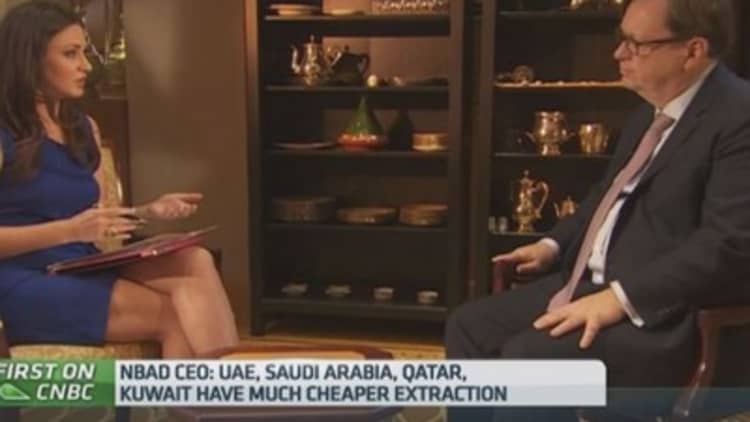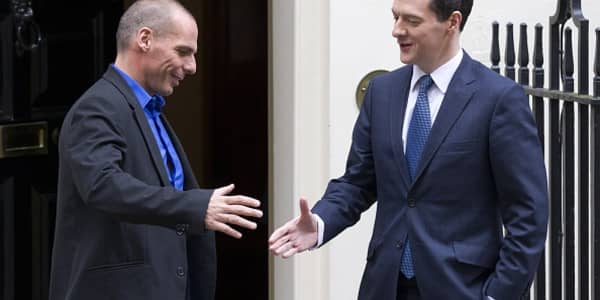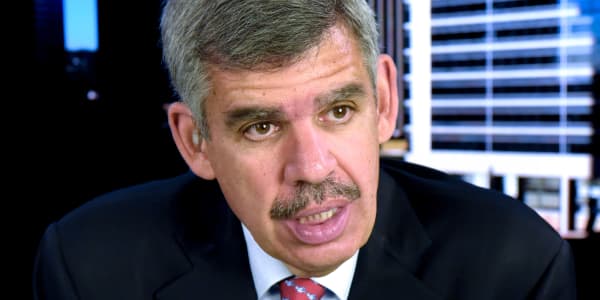
Leaders of some of the Gulf region's largest companies have dismissed the International Monetary Fund's recent concerns for the region after oil price weakness, claiming the "belt tightening" has actually been a positive for the region's economy.
There will some "long-term stayers" from the Gulf which will be able to weather the recent bout of low oil prices, the chief executive of state-backed National Bank of Abu Dhabi (NBAD) told CNBC, who added that region is simply no longer reliant on oil in the same way it once was.
"I think the long-term stayers are obvious to everyone - the United Arab Emirates (UAE), Saudi Arabia, Qatar and Kuwait have very cheap extraction. And those countries can continue to prosper from the extraction of hydrocarbons. I think beyond that, Iraq, certainly if it can get its political situation sorted, is also a very low cost producer," Alex Thursby told CNBC at the sidelines of the Global Financial Markets Forum in Abu Dhabi.
After dropping to close to a six-year low in January, the price of oil has rallied in recent weeks but forecasts for short-term price stability are mixed.
At the end of January, the IMF warned that the Gulf Cooperation Council (GCC) states, made up of Bahrain, Kuwait, Oman, Qatar, Saudi Arabia and the UAE will be hit hardest by the oil decline, estimating that export earnings will slide by about US$300 billion, around a fifth of their economy.
The fund also cut its 2015 UAE growth forecast to 3.5 percent, citing the impact of lower oil prices on Abu Dhabi's energy sector, down 1 percentage point from the IMF's October estimate.

But the chief executive of one of the largest property developers in the region said the slump in oil prices would not delay planned real estate projects, as Abu Dhabi-based firms have already started to successfully diversify from their focus on oil.
"Last year we handed over 7,000 units on time on top of that we leased and sold these units to the markets, which shows the diverse factors of selling and leasing. So we do see there is a very strong demand and there is still undersupply in Abu Dhabi," said Mohamed Al Mubarak, Aldar Properties CEO.
The firm, which built Abu Dhabi's Formula One race circuit, was given a $10 billion bailout from the Abu Dhabi government after the financial crisis, but has since seen a reversal of fortunes with profits rising strongly, as property prices and demand in the region have picked up again following 2008.
"We always say that the Gulf is in energy and in energy only. I think we have seen a huge change, 73 percent of the economy is non-hydrocarbon energy and I think that is very important and if you want to look at it more simplistically, Dubai will win enormously from cheaper oil. So I think we need to be little bit more understanding of the dynamics of the region and we are not just reliant on oil, those days are past," Thursby said.
"I think there is a long way to go before this part of the world gets adversely affected by the low oil prices," he added.
- By CNBC's Jenny Cosgrave in Abu Dhabi





